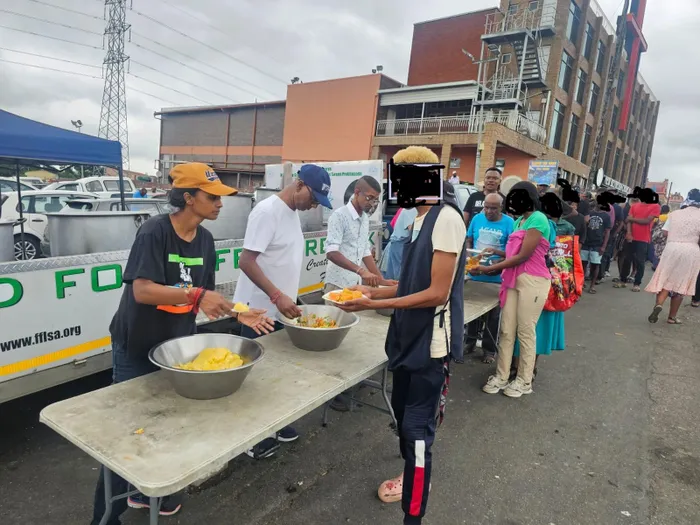Why volunteering matters more than ever in today’s world
Winter brings a familiar but devastating reality
As South Africa faces another bitter cold winter, the needs of our communities are more visible and more urgent than ever. Homeless shelters are overwhelmed, animal rescue centres are crying out for help, and countless families are struggling to afford the basics, including menstrual hygiene products. In such a climate, it’s easy to feel powerless. But there is one powerful act that can spark hope, uplift communities, and connect us to one another: volunteering.
Volunteering has always been a cornerstone of a compassionate society. Yet in today’s world, shaped by economic hardship, environmental crisis, and social inequality, the role of volunteers is not just important, it is essential. Whether it’s handing out warm meals, fostering abandoned pets, distributing sanitary pads, or simply offering time and skills, volunteering is a powerful force for change.

Soup kitchens and feeding schemes were making a huge impact on addressing hunger and poverty in the eThekwini Municipality and South Africa.
Image: Food For Life
Each year, Winter brings a familiar but devastating reality for many South Africans: freezing temperatures, inadequate shelter, and a struggle to survive. For people living on the streets, those in informal settlements, and children in under-resourced schools, winter is not just uncomfortable, it can be deadly.
According to recent reports from local NGOs, requests for blankets, warm clothing, and food parcels surge during these months. Animal welfare organisations face a similar crisis. Cold snaps are particularly harsh on strays and animals in shelters, where heating is a luxury and resources are stretched thin.
Many shelters are pleading for donations of old blankets, pet food, and even second-hand tennis balls to help stimulate and comfort dogs. This is where volunteers play a vital role. Individuals and groups who collect and distribute warm clothing, coordinate feeding schemes, or spend time walking dogs in shelters aren’t just making small gestures, they’re making survival possible. These acts of service offer warmth, safety, and dignity to those who need it most.
A Spotlight on Menstrual Hygiene Day – 28 May May 28 is Menstrual Hygiene Day, a global initiative aimed at breaking the silence and stigma around menstruation while advocating for access to menstrual products, education, and sanitation facilities. In South Africa, period poverty is a pressing issue affecting millions of girls and women, especially in rural and impoverished communities.
The statistics are staggering: an estimated 30% of girls miss school during their periods because they cannot afford sanitary products. This not only affects their education and self-esteem but also their long-term opportunities. Yet menstrual hygiene is still a topic that remains taboo, often ignored in mainstream conversations. Organisations like Dignity Dreams, which distributes washable sanitary pads to schools and communities, rely heavily on volunteers, from sewing pads and fundraising to conducting menstrual health education.
Volunteers who help in this space are empowering girls to stay in school, manage their periods with dignity, and understand their own bodies.
This Menstrual Hygiene Day, citizens can make a difference by organising pad drives, supporting awareness campaigns, or hosting educational talks. These actions may seem small, but their impact echoes across lifetimes. You can donate to a variety of NPOs who serve our communities. Volunteer Now can help you with this. www.volunteernow.co.za
Beyond addressing immediate needs, volunteering fosters something that society is sorely lacking: empathy. In a world that is often divided by politics, race, class, or social media echo chambers, volunteering brings people together in a shared purpose. It reminds us of our shared humanity and offers a way to engage meaningfully with others outside our usual circles.
Volunteering also strengthens communities from the inside out. It creates bonds between neighbours, builds trust, and encourages active citizenship. In many townships and rural areas, it is volunteers — not government agencies — who fill the gaps in service delivery, education, and healthcare.
Moreover, volunteering is not limited to adults. Schools and youth groups are increasingly encouraging young people to get involved in community service — not just to meet Life Orientation requirements, but to instill a lifelong ethic of social responsibility. When young people learn to care about their communities early on, they grow into adults who lead with heart and purpose.
Related Topics: